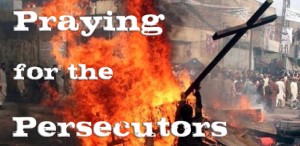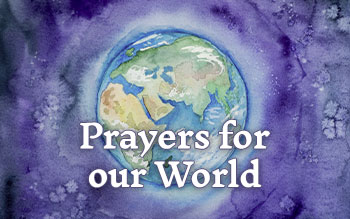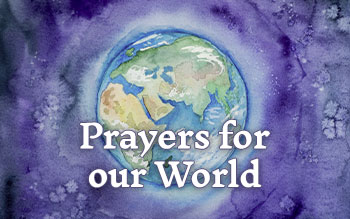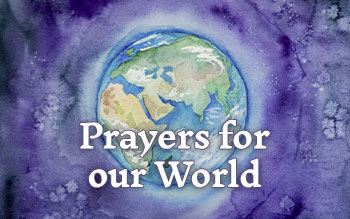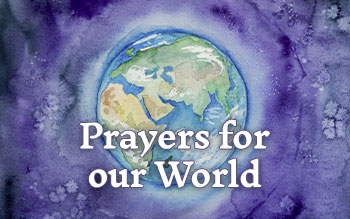
Super User
Lorem ipsum dolor sit amet, consectetur adipisicing elit, sed do eiusmod tempor incididunt ut labore et dolore magna aliqua. Ut enim ad minim veniam, quis nostrud exercitation ullamco laboris nisi ut aliquip ex ea commodo consequat. Duis aute irure dolor in reprehenderit in voluptate velit esse cillum dolore eu fugiat nulla pariatur
‘Gay conversion therapies’ are to be banned as part of a government 75-point plan to improve the lives of gay and transgender people. A national survey of 108,000 LGBT people suggested that 2% have undergone the practice with another 5% having been offered it. A plan costing £4.5m, has been produced in response to the survey. A national LGBT health adviser will be recruited to tackle discrimination, improve the response to hate crime and improve diversity in education institutions. While the government did not offer a definition of conversion therapy, its report said it ranges from ‘pseudo’ psychological treatments to surgical interventions and 'corrective' rape. Faith organisations were the most likely to have carried out the therapy, according to the report. The NHS does not refer people for it and disagrees with the practice.
The Trumpet Call day was framed in worship to Jesus - The Lamb who has conquered - and included deep times of humbling, confession and repentance after RT Kendall spoke and again after Malcolm Duncan had spoken. The promise contained in 2 Chronicles 7:14 invites us to continue to come to our heavenly Father on an ongoing basis for ourselves, for the Church and for our nations, in humility and confession in order that we might see a continuation of the turning from our wicked ways. The WPC team have had many encouraging feedback comments. One Church leader said it had completely turned around his ministry, another said ‘awesome is an overused word but it truly was awesome’. The team has also been very encouraged by feedback on evangelistic events happening at the same time and the week after and by conversations about prayer and mission whilst recognising that there is a hard road ahead of us.
Lewis Hamilton believes he has the hand of God resting over him when he steps into his Formula One car. The Christian racing driver will set his sights on wrestling back the championship lead at the British Grand Prix. ‘Anything can happen any day, but I feel God has his hand over me,’ Hamilton, 33, said ahead of his home race. ‘Every morning I have breakfast and before I eat, I pray. Every time I eat, actually, I pray. So, whether it's a couple of seconds, a minute or whatever you are praying for, take that moment. He attends church with a couple of friends, ‘We leave Church most often feeling enlightened and empowered. Sometimes you leave, and you are like 'I didn't get that today', but most of the time you leave and you are like 'wow, I know where I am going'.
Last week Prayer Alert readers prayed for Cabinet members to get behind Theresa May as she prepares to negotiate with EU members next week, hoping to deliver the best possible clean Brexit for the UK.
At the time of writing, (2 July 2018) Theresa May’s cabinet is squabbling loudly and in public ahead of a ‘crunch’ meeting at Chequers on Friday - when the Prime Minister wants to unite her team to agree on the terms of a white paper that she will present to Brussels next week.
There are strong views being aired on both sides of the Brexit debate regarding the customs arrangement. Brexiteers do not want to compromise in any customs union plans, while former remainers do not want anything that will damage UK business.
Pray: for God to pour his oil of peace over cabinet members in the coming days and during Friday’s meeting.
Pray: Ask God to replace public political backbiting and media speculation with professional qualified comments. May He bring harmony into all of Friday’s debates.
Pray: for Friday’s meeting to determine a way forward according to God’s agenda for the future of the United Kingdom.
Pray: for God’s flawless direction to replace unedifying public debate.
Greetings! We are pleased to bring our partners around the world the July edition of International Prayer Connections. Amidst many challenging and needy situations, there are reasons to give thanks to our Heavenly Father… for breakthrough in the Korean Peninsula that even months ago we could not have imagined and early rains in Cape Town that have eased the potential drought situation, to name just two.
Each month, I meet with fellow network leaders around the globe, using online conferencing software. I cannot remember a time with so much happening to further the mobilising of prayer and mission. We are seeing a number of initiatives that are focused on raising awareness and prayer for the unreached peoples’ groups. The Children in Prayer Movement are doing some excellent work and are an example of great collaboration. There are some encouraging developments across the middle east too.
I am grateful to my colleague Brian Mills for writing our lead article this month on the topic of Praying for the Persecutors. He has recently published a book entitled ‘Window on the Darkness’ that is timely and challenging. It is available in print or Kindle formats from Amazon USA | Amazon UK .
May I draw your attention to the United Prayer Rising event taking place in Toronto, Canada August 8-11 2018. This will be a significant event. Please see the article below. More information and sign up here:www.uprisingcanada.com
International Prayer Connections is produced and distributed freely each month. We are grateful to those who give generously to enable this to happen. If you would like to make a gift towards our costs, please click here.
Best wishes, in Him
John D Robb
IPC Chairman
By Brian Mills, Senior Advisor to the IPC
In recent days and weeks the catalogue of stories about Christians being persecuted seems to have increased in momentum.
Last week it was Mozambique, where Heidi Baker described how people were being beheaded, women were being raped and villages were being burned to the ground as Islamist terrorists went on the rampage. The week before it was about some churches in Indonesia being targetted by Islamist suicide bombers, with many deaths.
Last month it was about registered churches in Algeria being closed by the authorities, and followers of Jesus being restricted in what they are able to do. Bombs going off in Afghanistan with the main targets being those who are NGO’s from other nations. Many of the stories don’t get picked up by Western media. But on a daily basis Christians are killed or put in prison for their faith somewhere in the world.
Ministry leaders are experiencing increasing difficulties for their NGO’s and those serving Christ to obtain visas to travel into some of the most needy countries. Sometimes it is because of the dangers facing foreign workers, sometimes it is because foreign workers are not welcome. Sometimes the visits of foreigners puts added stress on indigenous followers of Jesus, in addition to the dangers they face constantly.
North Korea, so much in the news recently, has for many years been the number one country for persecution in the world. We are seeing how the situation there is beginning to change, and the hope is that this will help the thousands of Christians held in concentration camps there to find freedom. The prayers of God’s children, both in S. Korea and also from many other nations, over many years, and the many prayer assignments conducted in the DMZ, have built up to the stage that now we are beginning to see an unprecedented change in the spiritual atmosphere.
One of our friends in a Middle Eastern country – a remarkable woman of faith and enterprise - faces daily death threats from those who don’t want to see Christians succeed in their task and mission to refugees and to people of the majority population.
So how should the church around the world respond? What difference can ordinary Christians make?
There are three main ways in which agencies devoted to helping the persecuted church operate.
- Advocacy. These make representations to governments, the UN and the world’s media on behalf of some of the worse cases of those who are discriminated against or are in prison, sometimes on trumped-up charges, because of their Christian faith. Some cases grab the headlines. Many more are kept out of the limelight because of the sensitivities. They need prayer.
- Aid. These agencies seek to raise money and other resources to help impoverished churches and Christians function in the face of adversity. In many countries followers of Christ are unable to get jobs and face daily discrimination. Some are in refugee camps, and some are reaching out to those in refugee camps who are fleeing conflicts. The aid given is many faceted – from food to medical supplies, to finance for micro-businesses, to educational supplies for children, and for the supply of Bibles. They need prayer.
- Advance. These are the agencies that through personnel, resources and training help and equip indigenous leaders and believers in Christ to reach out with the Gospel, develop disciple-making movements and plant churches. Some of the most exciting stories of the growth of the church are coming from countries where persecution has been intense. In several Moslem countries the atrocities committed by Moslem against fellow Moslems is causing many thousands to turn away from Islam. The door is opening wider for the Gospel to be shared – but the spiritual climate is at least uncertain, and sometimes extremely dangerous. They all need prayer also.
So when we pray, what do we pray for? Most Christians seem to pray out of a sense of solidarity with those who are going through the fires of persecution. We are moved by the latest stories to hit the headlines. We pray for those who are suffering. We pray for those who are in danger or who are in prison, because of their faith. We pray for those seeking to reach out, despite the difficulties. Some of the stories of those who against all odds are doing this are deeply challenging to those in non- persecuted parts of the church globally. Some of us pray for Christians to escape persecution, or to survive despite persecution. But is that the right prayer? Some pray that those we know will be kept safe – is that it?
Followers of Jesus in countries where persecution is rife accept being persecuted as part of the normal Christian life. They know that Jesus said “If they have persecuted me, they will persecute you also” (John 15.20). Many of them are praying for weak Christians in the West, who don’t get persecuted, nor live in danger, but where faith is compromised in many dishonouring and not so subtle ways.
However, let me ask - do we pray as Jesus instructed us to pray? “Love your enemies and pray for those who persecute you, that you may be children of your Father in heaven.” (Matthew 5.44-45). Paul picked this up in Romans 12.14, when he wrote “Bless those who persecute you, bless and do not curse”.
What a difference would be made if the church around the world started blessing the persecutors – be they Governments, adherents of Islam, Buddhism or Hinduism, or Islamist or any other kind of terrorists? The example of Egyptian believers - when a number of Arab followers of Jesus were publicly be-headed by ISIS followers - is an outstanding example of this. Instead of bemoaning their plight, they started forgiving their persecutors and blessing them in word and song. The results are being seen in a rich harvest of souls in Egypt today.
Instead of being fearful of persecution, let’s focus on those doing the persecution, whatever their motivation may be.
By all means let us continue to pray for our brothers and sisters in general who are persecuted for their faith, but let’s also re-focus our praying on those mainly responsible for the persecution, that God would open their eyes and give them encounters with Him. He once did it with someone called Saul of Tarsus! And He can do this again and again in many situations around the world.
Brian Mills, Senior Advisor to the IPC
The Korean Christians have for decades mourned, wept and prayed with great travail for the ending of the conflict between North and South Korea and for reunification of their long-divided nation. Several other prayer initiatives in more recent years have been held at the DMZ, the armed border separating the two Koreas, and in other parts of South Korea. In some of these initiatives, the IPC has been deeply engaged with our Korean brothers and sisters who serve in the prayer movement there. God uses such united, combined prayer byHis people wherever they are to change history, even bringing about great transformations that are beyond human belief and comprehension. “With God all things are possible,” Jesus said. Let us, therefore, give Him thanks, praise and all the glory for what happened on June 12th in Singapore!
Here is a word about one of those most recent prayer initiatives. In an interview with CBN, Pastor Jerome Ocampo who is one of our IPC leadership team told the story of the UPRISING youth prayer gathering at the DMZ separating North and South Korea in 2016:
“Pastor Jerome Ocampo recounts the South Korea Uprising Prayer Conference in 2016 where young leaders of churches from different nations gathered near the border of North Korea. They cried out to God for the reunification of the Korean Peninsula.
Although, human rights and religious freedom were not the focus of the Singapore Summit, Pastor Jerome believes denuclearization can pave the way to a greater purpose. He said people should also pray for reunification, liberation, and freedom for North Korean believers to practice their faith.
Spiritual revival took place in the North Korean capital of Pyongyang in 1907. Ironically today, North Korea is a place where Christians suffer the world’s worst persecution. In the book by missionary Kwang Choi, It’s Fine Should I Die, North Koreans testify how they were brainwashed from childhood into believing that “Christianity is a tool of invasion of small and weak nations by the imperialist United States of America and its agent, South Korea’s puppet government," Choi wrote. "Christians in North Korea were already purged in prison camps even before the Korean War began in 1950."
This is one reason why some Christians believe a US president coming face-to-face with a North Korean leader was nothing short of miraculous. Pastor Jerome shared a dream he had about Kim Jong Un just two weeks before the 2016 Uprising conference. He said, “I dreamt of Kim Jong Un, he had a dream. And he was waking up in the morning. And there was this voice that goes like this, 'Will you be remembered as the Korean who destroys North Korea, or would you like to be remembered to be the Korean who unites North and South Korea?' He made a choice, 'I will be the Korean who will unite North and South Korea.'"
And this is why Pastor Jerome is rallying Christians to pray for Kim Jong Un.
He said that what God has shown through the events that transpired is that he has access to Kim Jong Un’s heart and therefore God can do more.“We cannot erase what he has done in the past. The whole history of the regime will always be there. But as a millennial, he is the most flexible in all the regime to bring change," the pastor said. "And we’re gonna pray for change. God can bring that change. We will see one day one Korea. We will see one day Pyongyang will welcome believers and we will see God manifesting His glory again probably in a new way of revival all over Korea," he said.
Meanwhile, prayers for North Korean peace are taking place all around the world. Johnnie Moore, the unofficial spokesman for President Trump's evangelical advisers, says he met with a North Korean leader to pray and believe for healing for Korea.
"Today, in Switzerland, I met & prayed together with the leader of North Korea's 'Korean Christian Federation' - from Pyongyang," Moore tweeted."I asked if he had a message for American Christians & he said: 'We are brothers & we are all children of God whom God has called to peace,'" Moore said.”
'We Will See God Manifesting His Glory' in N Korea: Why These Praying Christians Are Confident
Excerpted from Cbn.com 06-17-2018 Lucille Talusan
Open Doors International which works on behalf of persecuted Christians around the world and to help those in North Korea, the number one persecutor of believers, issued this call to prayer before the Singapore summit. These prayer concerns are still vital for us to pray for the nation after the breakthrough summit:
PRAYING AND FASTING FOR A COUNTRY RULED BY ISOLATION AND FEAR
For the last 17 consecutive years, North Korea has ranked as the #1 most dangerous country for Christians on the World Watch List. The country has become infamously known for its human rights violations of North Koreans and harsh treatment of North Korean Christians.
In the East Asian country, the Kim regime uses isolation and fear to rule the country–keeping the 25.4 million people living there uninformed and immersed in propaganda. North Koreans must worship the ruling family–nothing else–and Christianity is illegal and will be punished. The discovery of faith results in imprisonment in the country’s notorious prison camps and even death for not only the individual or family but also three generations of that family.
Below, we offer 15 powerful, informed and specific prayers of petition that we, as the Body of Christ, can bring to God—interceding for and standing with our North Korean brothers and sisters in Christ…
15 IMPORTANT, INFORMED PRAYERS…
- Pray that President Trump and Kim Jong-un’s historic meeting on June 12 will be the first in a series of actions thatsets Korea on a new course of religious freedom.
- Pray that Kim will be convinced torelease the more than 50,000-plus Christians unjustly held in detention centers and prison camps throughout the country.
- Pray that Kim willloosen age-old requirements that residents attend indoctrination classes and display and bow to Kim family portraits.
- Pray that Kim willlift information embargoes and allow his people greater access to radio shows, TV programs, and websites.
- Pray that Kim will allow for thecreation of new churches where North Koreans can freely worship outside of the one “show church” that currently exists.
- Pray that existing believers within North Korea would takecourage to lead a new revival of the Christian faith in North Korea.
- Pray that theunderground church In North Korea would grow in boldness and be ready for widespread evangelism efforts when the opportunity arises.
- Pray that extendedfamilies who have been separated across North and South Korea may be reunited.
- Pray that organizations likeOpen Doors will be allowed access to provide Christian training and resources to believers in North Korea.
- Pray that other relief andaid organizations would gain entrance to provide relief aid, trauma care, and other needed services.
- Pray that North Korea’s economic and social infrastructure will find reform—thatchildren will no longer be forced into labor, that preschoolers will no longer be indoctrinated, that roadways will be made safe.
- Pray that North Korea’sfood supply would be enriched through education and increased trade, so that the 2 in 5 who are currently undernourished will be provided with adequate nutrition.
- Pray that God will give North Korean peoplewisdom to sift through the many nationalistic and mythical storylines and propaganda they have been fed throughout their lives.
- Pray thatparents will ultimately be able to freely share their faith with their children and raise them to know Jesus.
- Pray that U.S. and other world leaders would put in place theright sanctions, pressures, encouragements and opportunities to restore peace and well-beingfor North Koreans and their neighbors.
June 6, 2018 by Lindy Lowry. https://www.opendoorsusa.org/christian-persecution/stories/leading-up-to-u-s-north-korea-summit-open-doors-calls-for-24-hour-prayer-fasting-on-june-11/
Please have a look at this video presented to Kim Jong Un at the Summit:https://www.youtube.com/watch?v=8rzZpFlysy4
Let’s pray that Kim Jong Un and his government will opt for this new vision for their society rather than the alternative of nuclear war with the USA and other concerned allies.
Pray that they will rapidly follow through on the agreements made during the Singapore summit and denuclearize their nation.
Some of the harshest persecution of Christians is in Nigeria and other parts of especially Muslim-inhabited Africa. Here are two reportsfrom well-respected African leaders:
- It was reported that on 4thFebruary, 2017, the US Congress affirmed that the most dangerous nation on earth for anyone to be a Christian is Nigeria.
- There are five notable Islamist terror groups worldwide. The 1stmost terrible is Boko Haram and the 4this Fulani herdsmen. Both 1stand 4th operate in Nigeria.
- According to World Watch Monitor, over 60% of global Christian fatalities as a result of persecution are Nigerian Christians killed in Nigeria.
- A research report by Arne Mulder affirms that as of December 2014, over 13,000 Church buildings have been destroyed and abandoned in northern Nigeria.
- The current Federal Administration in Nigeria is openly pursuing an anti-Christian agenda that has resulted in countless murders of Christians all over the nation and destruction of vulnerable Christian communities. Just recently, Elder Statesman Gen. T. Y. Danjuma raised an alert that Christians should take steps to defend themselves.
- Mass burial of Christian victims of Jihad is becoming a regular occurrence in Nigeria. The most recent one was done by the Catholic Church a few days ago.
- Christians have been emasculated out of the security infrastructure in the country.
Reuben Ezemadu
International Director, CMF Inc
Continental Coordinator, MANI
E-mail:This email address is being protected from spambots. You need JavaScript enabled to view it.





